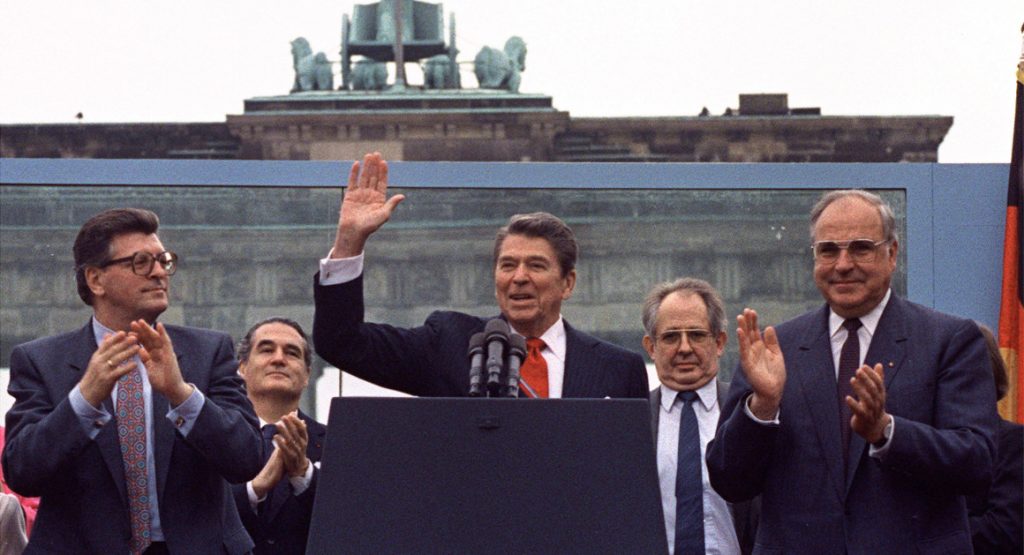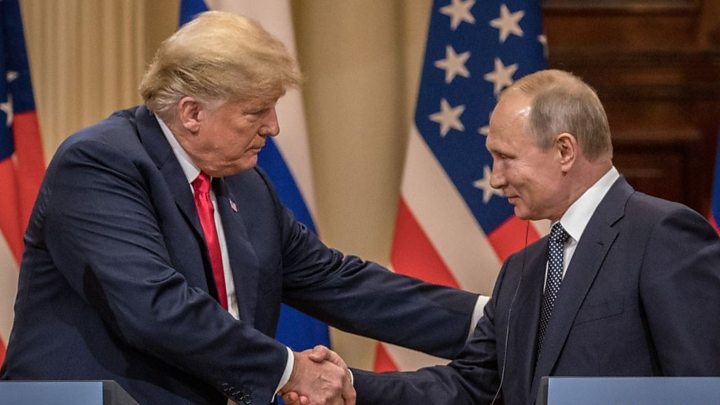This piece originally appeared in the Lewiston, Idaho Tribune
———–
Sometimes, what appears to be a minor change in political direction turns out to be a historic turning point.
Did most Americans in 1933 realize that the slew of legislation that flew through Congress in the first 100 days of Franklin Roosevelt’s presidency would shape the American political environment for decades? The New Deal was a marketing slogan, but the legislation behind the words continues to define the Democratic Party.
Did most Americans know that an obscure Supreme Court decision in January 1976 involving little understood aspects of campaign finance law – Buckley v. Valeo– would become the triggering event that transformed American politics, leading eventually to “dark money” and vast amounts of unregulated cash perverting democracy?
Political change rarely comes quickly or decisively, but most often plays out over time in fits and starts. The Age of Trump may be an exception to that rule.
Will historians look back on Trump’s tenure as a blip or a head spinning turning point? In one area – foreign policy – I’d bet on chaotic turning point. And Idahoans have, if they choose to pay attention, a front row seat to this turning point with their junior senator now chairing the Senate Foreign Relations Committee. Yet, Jim Risch seems wholly content to get along and go along with the chaos in American foreign policy rather than make even a feeble effort to shape the direction.

As proof that we have arrived at a historic point rather than a one-off deviation from norm, consider the fact that the party of “tear down this wall,” Ronald Reagan’s famous challenge to Soviet leader Mikhail Gorbachev in 1987, has transformed itself into a party that not only tolerates, but meekly acquiesces to the former KGB operative who seeks to re-establish the Russian empire. And a Republican president willingly helps him.
Beyond the stunning and unequivocal conclusions of the Mueller report regarding Russian election interference, including the widespread distribution of disinformation designed to sow discord and help elect Trump, there is other growing evidence of Vladimir Putin’s “grand strategy” to reassert Russian influence in a host of ways.
A new analysis prepared for the U.S. military reads like something Reagan would have reacted to: “Contrary to conventional analysis, after two decades under Vladimir Putin, Russia represents an ideological challenge to the West, not just a political and military rivalry. Although NATO continues to possess impressive overmatch against Moscow, that edge is dwindling, and Western vulnerabilities in certain military areas are alarming. Moreover, the unwillingness of Western experts and governments to confront the ideological — as well as political and military — aspects of our rivalry with Putinism means that the threat of significant armed conflict is rising.”
The key phrase there is “the unwillingness . . . to confront.”
Donald Trump this week verbally assaulted the British prime minister and the UK’s ambassador to Washington for the handling of Brexit, the still pending UK withdrawal from the European Union, and for a leaked series of British assessments of Trump and his administration, but there has never been even a mild rebuke from the president for Russian actions. Instead, Trump recently joked with Putin about not again interfering in an American election and, of course, Putin favors anything weakening European unity.
As for the Brit ambassador who reported to London that stories of chaos in the Trump White House were mostly true and that Washington has become an unreliable ally, the president Tweeted: “The wacky Ambassador that the U.K. foisted upon the United States is not someone we are thrilled with, a very stupid guy.”

After Trump repeatedly praised Putin before his election as “a strong leader” and someone he could make great deals with, Trump dismissed all the U.S. intelligence agency’s belief that Russia interfered in his election. “I have President Putin here,” Trump said in that surreal moment in Helsinki in July 2018, “he just said it’s not Russia. I will say this, I don’t see any reason why it would be …”
Trump recently questioned the long-standing U.S.-Japan mutual defense agreement and he has repeatedly diminished the NATO alliance that has kept the peace in Europe for 75 years. He has shredded relations with France, Canada and even Australia. Yet after North Korea’s murdering dictator called Trump mentally deranged, a dotard, a gangster and a frightened dog, the president chose to coo over the “love letters” between the two, while angling for yet another face-to-face meeting.
In almost all of the post-war period the Republican Party has claimed the mantle of being strong on national security and the GOP language about protecting American interests often put Democrats on the defensive. Republicans routinely assaulted their opponents for opposing expensive weapons systems. Steve Symms made hay with such issues when he defeated Frank Church in 1980 in the most celebrated Idaho Senate race ever.
Yet, the challenge presented by Putin and his fellow autocrats must be countered with more than military might, as the new Pentagon report makes profoundly clear. “Political objectives matter to the Kremlin in a zero-sum worldview,” the report asserts. “For Russia to win, the U.S. has to lose.”
Or as the commentator Philip Rotner wrote recently: “Trump’s retreat from the values that defined the post-World War II era of American exceptionalism has immediate negative consequences, above and beyond the long-term damage it does to America’s unique place in the world (as if that weren’t enough).
“It’s a gift to the tyrants of the world. It gives them the one thing they most covet: Impunity.”
So where is Idaho’s Risch during this historic transformation of U.S. foreign policy? I’ll remind you again that he said recently that, “Russia is the most overrated country in the world.” Putin must live to hear a conservative Republican in the foreign policy establishment say such things because the Russian knows where he wants to go even if the senator does not.
Risch has explicitly rejected the kind of activist role in shaping foreign policy that marked Church’s long career, as well as that of Idaho’s William Borah in the interwar period. He has the title of chairman, but he is clearly a figurehead, content to win re-election next year by embracing all things Trumpian.
History will not treat either of them well.
